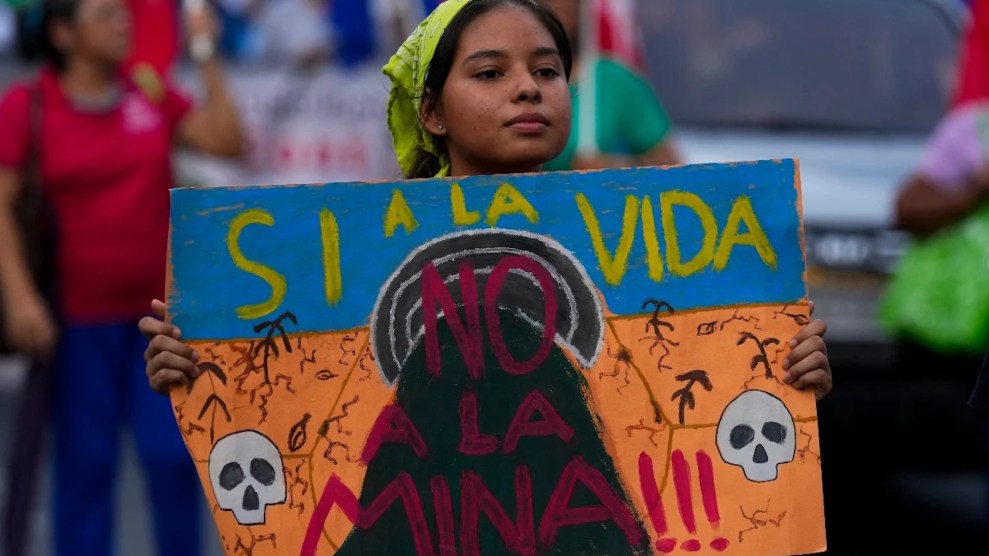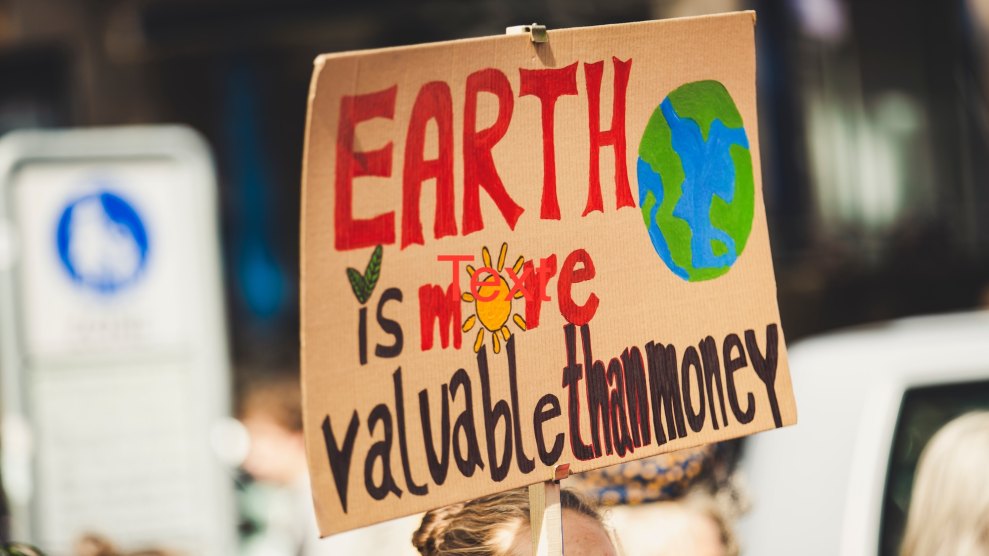
A facility for building the Keystone Pipeline in Nebraska from 2015.Zuma
This story was originally published by the Guardian and is reproduced here as part of the Climate Desk collaboration.
More than $100 billion of public money has been awarded to private investors in investor-state dispute settlement (ISDS) courts, according to the most comprehensive analysis yet.
The controversial arbitration system which allows corporations to sue governments for compensation over decisions they argue affect their profits is largely carried out behind closed doors, with some judgments kept secret. But, according to a global ISDS tracker which launches today, $114 billion has so far been paid out of the public purse to investors—about as much as rich nations provided in climate aid in 2022.
Fossil fuel companies have been by far the biggest beneficiaries of the corporate panels, raking in $80.2 billion since 1998, according to the site. If current trends continue, at least another $48 billion will be disbursed to settle cases currently under litigation, the research finds.
“The data backs up what we’ve been saying for years: ISDS is the secret weapon for fossil fuel companies against climate laws. “
Lucía Bárcena of the Transnational Institute, one of the three groups that created the tracker, said: “Much like the British government paid slaveholders around [$9 trillion] in today’s money for ending slavery, the ISDS mechanism continues a system where corporate perpetrators get paid for finally doing the right thing, or at least for stopping with doing the wrong thing. This money should be spent on reparations for the innocent victims of global heating not handed out to the corporations responsible for causing it.”
Tom Wills, the director of the Trade Justice Movement, which co-created the tracker, said: “The data backs up what we’ve been saying for years: ISDS is the secret weapon for fossil fuel companies against climate laws. Corporate courts are also used to threaten governments not to give in to popular local or national demands for climate action. This needs to be put to an end. The data shows reform is urgently needed.”
The ISDS system is reeling after EU countries last week withdrew en masse from the energy charter treaty, one of the most significant sources of investor-state claims.
But the mechanism remains a feature of most modern international investment agreements. It gives foreign investors the right to sue states for billions of dollars when their anticipated profits are affected by public measures such as green regulations.
Unlike national courts, ISDS tribunals allow investors to shape the panels that will hear their case, creating “obvious risks of bias, conflicts of interest, potential misconduct and other abuses of power,” according to a UN report last October.
The ISDS system had prevented states from taking climate action, even when it had been “necessary and foreseeable for decades,” the report found.
The tracker has a searchable archive of all 1,362 ISDS cases filed. It shows that investors have so far tried to claim $857 billion from national governments, with 129 claims registered for $1 billion or more.
Some of the most eye-catching cases include:
- A $15 billion compensation suit by TC Energy against the US government for canceling the Keystone XL pipeline which would have carried 830,000 barrels of highly polluting tar sands oil to the US coast every day. The permit was withdrawn by Joe Biden on his first day in office after a long campaign by Indigenous Americans, farmers and climate activists. The pipeline had been championed by ex-president Donald Trump and became a touchstone culture war issue.
- Ruby River Capital’s claim for “no less than $20 billion” after the Quebec government canceled a natural gas liquefaction plant on the St. Lawrence River. An environmental impact assessment had found that the plant would increase greenhouse gas emissions, hurt Indigenous Canadian communities, and destroy biodiversity. RRC’s claim was the largest ever under the North American Free Trade Agreement.
- The most lucrative ISDS claim currently being heard is Zeph Investment’s $200 billion case against Australia over a huge planned mine in Western Australia which, Zeph Investment claims, the Australian government had “effectively destroyed,” in breach of the Asean free trade agreement.
- Avima Iron Ore is seeking $27 billion from the Republic of the Congo, after it revoked iron ore mining licenses for three Australian-owned firms, handing them instead to a small Chinese investment group. The sum is almost twice as much as the country’s GDP last year.
The modern ISDS system is widely viewed as an outcrop of efforts to prevent former colonies in the global south from appropriating or nationalizing industrial concerns after independence. The Office of the US Trade Representative even lauds ISDS as a peaceful alternative to the gunboat diplomacy of the 19th century. But it has largely evolved to constrain national pushes for social and environmental regulation that could adversely affect investor ambitions.
Fabian Flues, of the PowerShift NGO, which co-compiled the analysis, said: “The injustice is glaringly obvious: countries in the global south are the main victims of ISDS, while corporations from Europe and North America benefit. It transfers public money into the hands of a few corporations and their shareholders. This has to stop. It is high time for countries everywhere to leave the treaties that include ISDS so that they can build a fair and sustainable future.”
The Guardian approached the US Chamber of Commerce and Business Europe for comment.
















